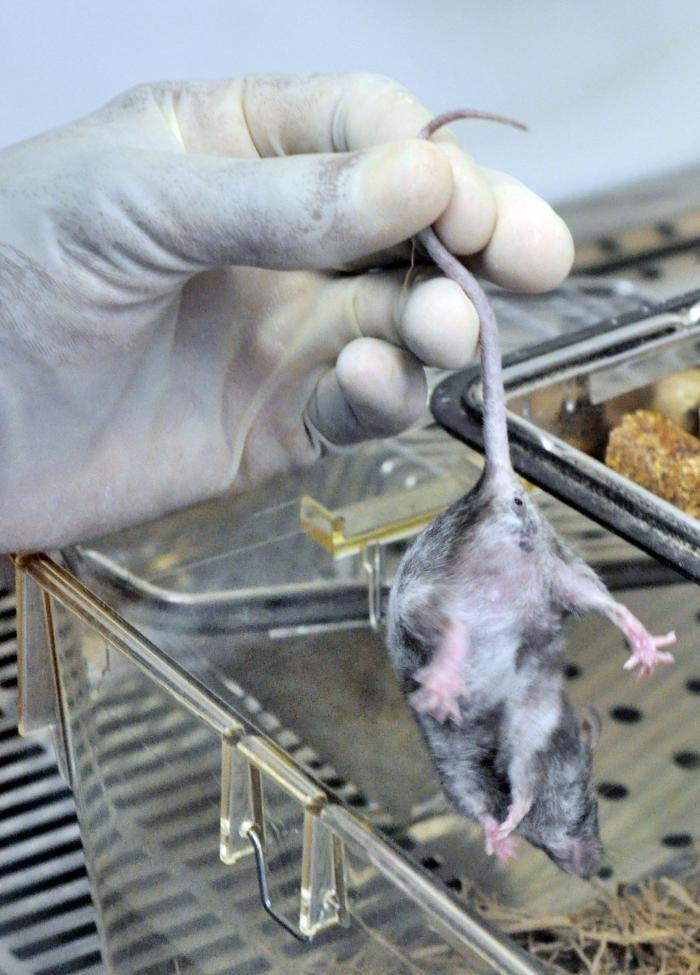
Treatments or treatment projects for neurodegenerative diseases such as dementias (including Alzheimer's disease, Pick's disease or frontotemporal dementia, dementia with Lewy bodies, Parkinson's disease, vascular dementia, among others) do not abound in the world and Cuba is part of that list of countries that have, at least, innovative molecules aimed at treating these diseases.
One of them is the JM-20 molecule, developed by the Center for Research and Development of Medicines (CIDEM in Spanish) about ten years ago, a center of the BioCubaFarma Business Group, in partnership with the Faculty of Chemistry of the University of Havana (UH).
Initially conceived to treat cerebral ischemia, CIDEM and the Faculty of Chemistry began the project for this totally novel drug by looking for hybrid structures, in this case, the fusion of a benzodiazepine and a dihydropyridine, which are the two types of drugs with neuroprotective properties, recalls Dr. Alejandro Saúl Padrón Yaquis, general director of CIDEM.
During the project, a series of 20 similar molecules were formed and tested to see which one had an impact on the ischemia models, and JM-20 was the one selected, he continues.
“We began to study the product for ischemia, and even carried out preclinical studies. We realized that, instead of worsening memory, it improve it. Then we began to study its impact on other neurodegenerative diseases such as Alzheimer's and Parkinson's," he explained.
"The reason to broaden its testing to other neurological diseases, despite the advances in the studies on ischemia, is because we discovered during the preclinical studies of cerebral ischemia that JM-20 interfered with neuronal damage mechanisms, which are also present in other diseases of the central nervous system, including different types of dementia and Parkinson's disease."
Globally speaking, this type of diseases has almost no drugs to treats them, the director said. The projects to treat these diseases focus on only one of the mechanisms involved in the degeneration of the central nervous system, when in diseases such as ischemia, Alzheimer's or Parkinson's intervene multiple mechanisms.
JM-20, being a hybrid molecule, is capable of acting on different therapeutic targets related to neuroprotection. Most of these findings have been published in different international journals and have led to patents in several countries.
JM-20 TO START CLINICAL TRIALS IN 2023
Once the preclinical trials in animal models, the toxicological and pharmaceutical studies are about to be completed with satisfactory results, the clinical trials to test the effects of JM-20 in humans are expected to begin in early 2023.
According to the General Director of CIDEM, the preclinical studies have been carried out in rodents and in the next months the tests will be completed in a second species, which in this case will be the zebra fish, provided by the recently inaugurated in-house laboratory for this species.
Taking into account these advances, a Phase I clinical trial will begin in 2023, with healthy volunteers, aimed at demonstrating the safety of the product and scaling up doses, Dr. Padrón Yaquis explained. It will also aim at studying the effects of the molecule in the treatment of Alzheimer's and Parkinson's disease.
In general, the preclinical studies have confirmed good results that support the move to clinical trials with the molecule. It also has favorable toxicological studies, as no toxic adverse effects have been observed in animals, he pointed out.
The research has another valuable backing: the molecule has been studied not only in Cuba, but also in other universities and prestigious laboratories, in countries such as Germany, Russia and Brazil, which have endorsed the results.















